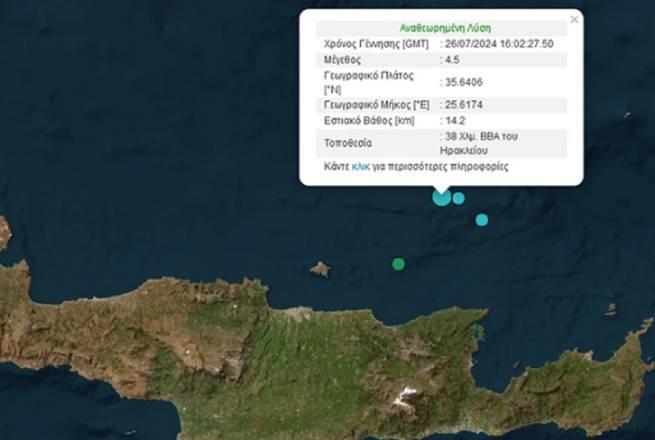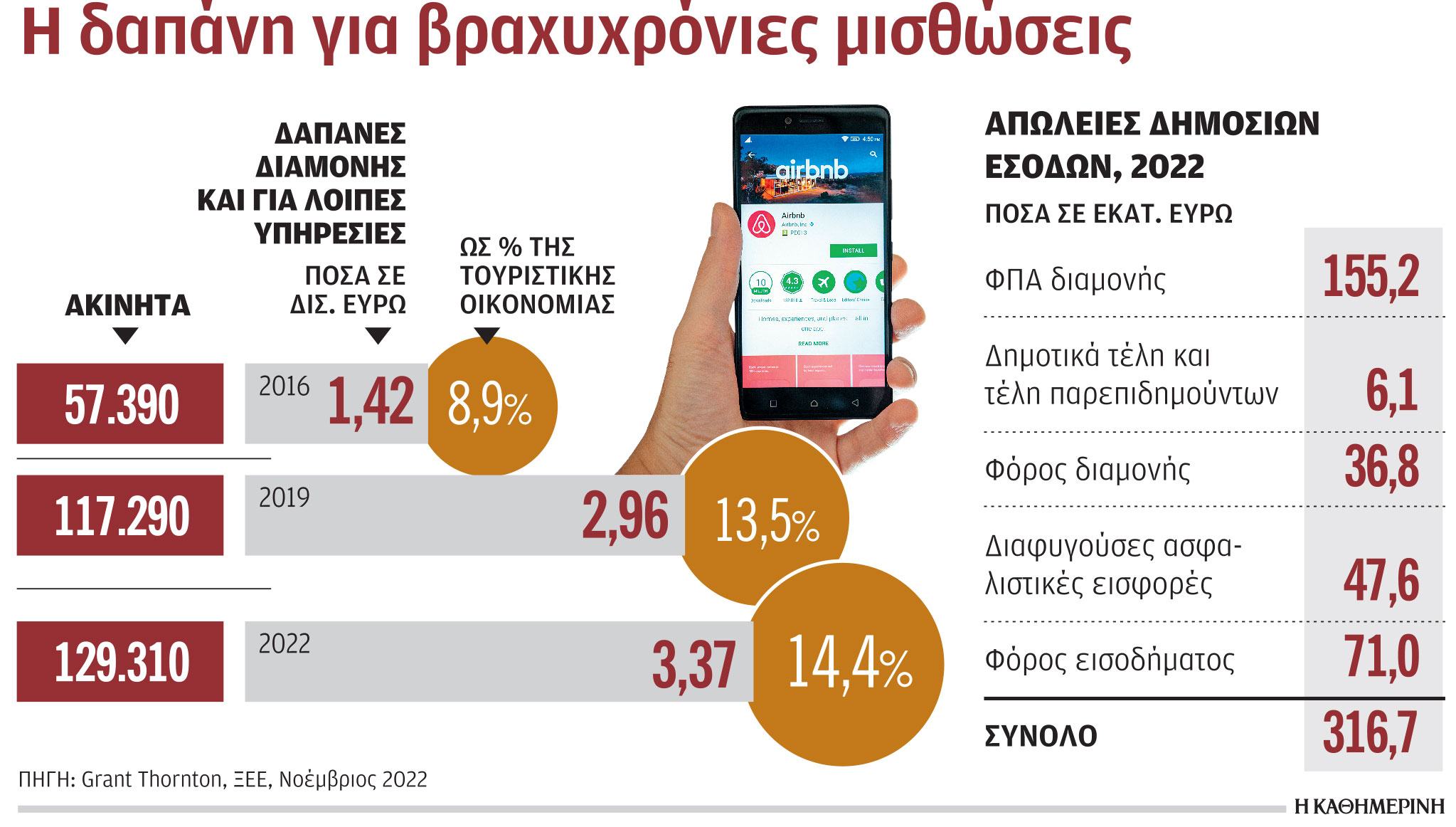Veiled real estate rental advertisements on Facebook, Instagram and other social networks are being “searched” by the tax authorities in order to identify undeclared income.
The scope of the law is being tightened for property owners who evade declaring short-term rental income to the tax office, as well as for those who have not entered their property on the AADE electronic platform, including the registration number, into the register. The audit engine initiates electronic and cross-checks of owners’ tax returns using data obtained from the Airbnb and Booking.com platforms, as well as from banks (credit cards and bank accounts) to establish whether the total income was declared as received in the previous year.
At the same time, with the help special algorithms auditors check social networks, mainly Facebook and Instagram. As noted, in the past it has already been successfully discovered that many transactions were made without declaring income in the tax return and did not go through the bank.
Essentially, AADE inspectors are looking for landlords who have uploaded their short-term rental properties to social media. They will check whether the required payments have been made to the tax office. If it is found that property owners are not complying with their tax obligations, they will have to pay both the relevant taxes and the penalties due. Owners and managers of properties such as Airbnb who have not entered their property registration number (AMA) on online short-term rental platforms where properties are being booked, or have provided incorrect information about their property, will also be subject to tax evasion screening, according to the Ministry of Finance.
In cases where it is determined that a property has either not been declared on the Short Term Property Registry or has been posted on digital platforms without an Short Term Property Registry (AMA) number or a Special Use Mark (ESL) or Unique Notice Number (MAG), the details of the managers are sent to ΔΟΥ.
It is noted that all data will be verified with the actual information received by AADE from the Airbnb, Booking.com and VRBO platforms of the Expedia group based on the cooperation protocol signed by them. In cases where it is determined that the property has not been declared in the short-term property registry or has been posted on digital platforms without clearly indicating the short-term property registration number (AMA) or special operation mark (ΕΣΛ) or unique notification number (MAH), then the attributes of the objects and “Controllers” are sent to ΔΟΥ, and the owners are summoned to the tax office to give explanations.
In previous years, over 20,000 short-term rentals (Airbnb, etc.) were identified that were not listed on the online registry. In fact, the head of AADE called on owners and managers to start declaring property and income for the two years 2018-2019.
The tax administration is already doing complex new crossovers with data received from credit institutions, as well as from cards such as PayPal. Under current legislation, the fines that will be levied on offenders will range from 5,000 euros to 20,000 euros and will relate to the following:
• Lack of registration in the short-term lease register.
• Non-obvious mention of the registration number in the registry when posted in the section “Real Estate” (“Ακινήτο”) on digital platforms.
• Non-obvious indication of a special distinguishing sign when placed in the “Real Estate” section (“Ακινήτο”) on digital platforms.
The fine provided for each violation is 5,000 euros, which is doubled (10,000 euros) for the second violation. For each subsequent violation, starting from the third, a fine four times greater than the originally imposed one, that is, 20,000 euros, is levied.







More Stories
Digital Currencies: Global Control or New Opportunities? What's Behind the Introduction of Digital Money
BRICS + ACEAN: A New Era of World Currencies
How much does a square meter of housing cost in the Cyclades